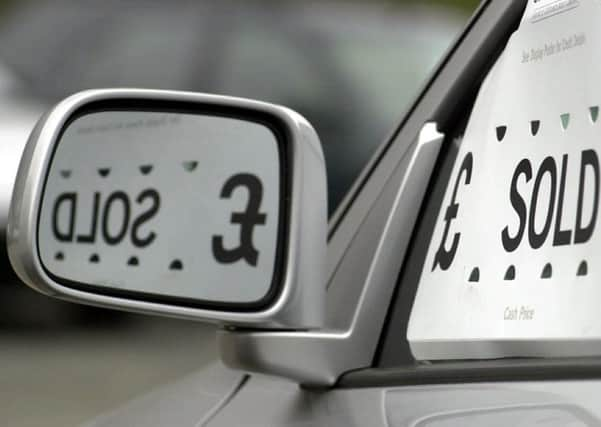David Alexander: A credit car crash waiting to happen?
This article contains affiliate links. We may earn a small commission on items purchased through this article, but that does not affect our editorial judgement.


When I reached 17 – more years ago than I care to remember – cars were very much inferior to those of today as was the method of financing a purchase.
Government restrictions required buyers to put down a deposit of at least one-third of the overall price and the resultant hire-purchase contract probably incurred an interest rate of circa 30 per cent, along with questionable add-ons, for example “completion” fees.
Advertisement
Hide AdAdvertisement
Hide AdMrs Thatcher’s abolition of credit controls subsequently transformed the situation, and more households became owners of a new car than ever before.
Currently, however, the preferred method of car ownership appears to be personal contract purchase (PCP), which involves a low deposit followed by monthly payments over three years, after which the buyer pays a final sum to own the vehicle outright, hands it back and walks away, or enters into a new contract with another new car.
These contracts now account for eight out of ten car purchases made on credit, which is why so many households with modest incomes now have a brand spanking new model parked outside their front doors.
However, a new report claims the cost and commitments of PCPs may have a detrimental effect on securing a mortgage. This could rebound on first-time buyers or even current homeowners wishing to trade up, but there are potential consequences for the residential rental market too.
The same report said the popularity of PCPs was part of a worrying trend in increased personal indebtedness, boosted by historically low interest rates. Growing numbers of economic experts are warning that the level of consumer credit is, if you’ll forgive the pun, a car crash waiting to happen. And without credit controls, there is only one way to put the brake on this spending, and that is higher interest rates.
The fallout from the financial crash introduced a new piece of vocabulary to the housing market – the “reluctant landlord”, describing a homeowner who needed to move but, unable to sell, had to let out the property being vacated.
Advertisement
Hide AdAdvertisement
Hide AdHowever, since the crash a second type of reluctant landlord has emerged, with a substantial pile of cash who did not wish to take risks with the stock market but who despaired at the negligible returns from savings. Consequently, he reluctantly entered the buy-to-let market as a means of securing a decent return from a safe investment vehicle.
Much to their surprise, some of these newcomers have taken to landlordism like ducks to water and are now committed buy-to-let enthusiasts. However, there are others who do not wish the responsibility of property ownership and prefer the liquidity and flexibility of cash. Consequently, when interest rates revive and savers start to get a real return again, this type of landlord is likely to want to sell up.
One of the reasons rented homes are in such demand right now is because of the substantial deposits required by banks and building societies, having previously got their fingers burned with loan-to-value mortgages of up to 125 per cent.
Imagine the potential scenario if this situation is complicated by more expensive home loans resulting from higher interest rates and, therefore, even more demand for rented accommodation – at a time when some landlords are selling up to take advantage of said interest rates. Not an inviting prospect.
Back in the car showroom, some commentators are claiming that the popularity of PCPs has led to a raft of good-quality vehicles being dumped on the second-hand market and that modern pre-owned cars offer better overall value.
But with the way things are, perhaps the best option for anyone saving for their first home, especially in a bus-friendly city like Edinburgh, is a Lothian Buses season ticket.
• David Alexander is managing director of DJ Alexander